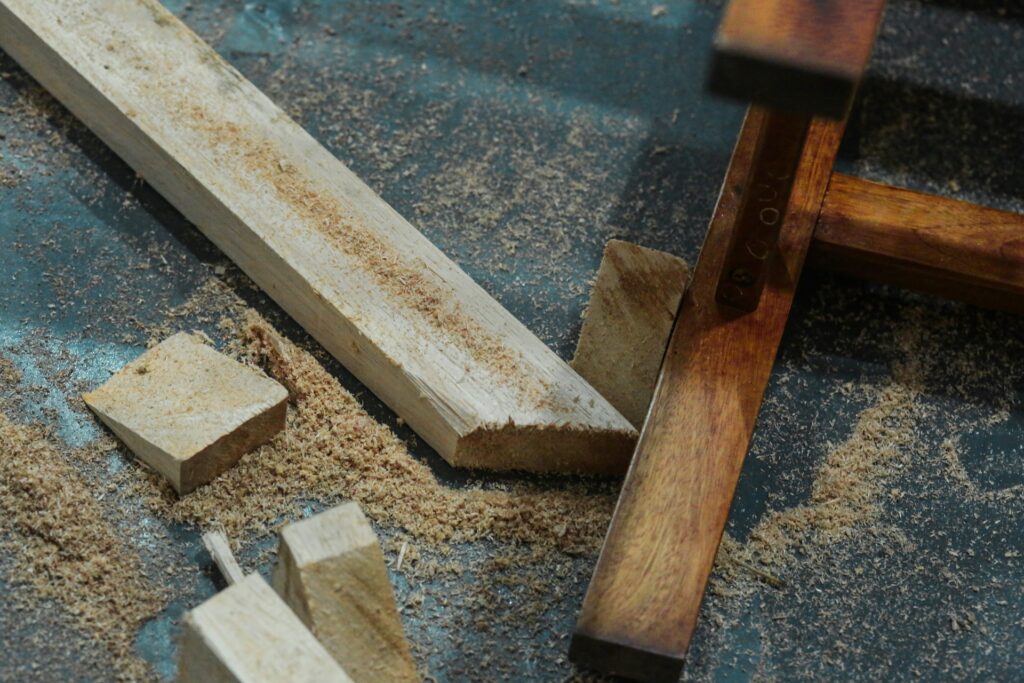Indonesia is one of the world’s most respected sources of hardwood furniture, trusted by international retailers, distributors, and hospitality brands. With its combination of sustainable timber supply, expert craftsmanship, and stringent certification systems, the country delivers both quality and credibility. This article explores why Indonesian hardwood furniture continues to lead globally in durability, design, and compliance.
1. What Defines Indonesian Hardwood Furniture
Indonesian manufacturers rely on a rich variety of hardwoods sourced from sustainable plantations:
- Teak (Tectona grandis): Dense, naturally oily, and exceptionally weather-resistant — ideal for outdoor furniture (ITTO).
- Mahogany (Swietenia spp.): Smooth texture and warm tone suited for indoor use.
- Acacia and Mindi: Fast-growing, plantation-friendly hardwoods offering sustainability and affordability.
These materials give Indonesia a competitive edge in both eco-conscious and premium markets.
2. Durability Through Craft and Process
Durability in Indonesian hardwood furniture isn’t just about the material — it’s the process:
- Kiln drying reduces moisture to 8–12%, ensuring stability during shipping and in different climates.
- Mortise-and-tenon joinery ensures structural integrity and longevity.
- Protective finishing (oils, lacquers, sealants) enhances both appearance and lifespan.
Factories maintain hybrid production systems that combine CNC precision with hand finishing, ensuring each piece meets international standards (Republic Furnitures).
3. Certification and Compliance Advantage
Indonesia is one of the few countries with a nationally enforced timber legality system:
- SVLK (Sistem Verifikasi Legalitas Kayu) – Mandatory for all exports; verifies that wood is legally harvested (FLEGT.org).
- FSC® certification – Optional but highly valued by EU and US markets.
- BSCI and ISO standards – Adopted by manufacturers serving global retailers.
This strong compliance framework gives Indonesian exporters credibility and smoothens customs clearance for buyers.
4. Design Versatility and Market Reach
- Outdoor furniture: Teak’s durability makes Indonesia a leader in resort and garden collections.
- Indoor furniture: Mahogany, acacia, and mindi offer versatility for modern, rustic, or classic designs.
- Retail and hospitality applications: Factories cater to both bulk retail orders and custom project-based production.
Indonesia consistently ranks among the top 10 furniture exporters globally, with growing demand from Europe, the Middle East, and North America (CIFOR).
5. Why Global Buyers Choose Indonesian Hardwood
Buyers select Indonesia not only for materials but also for its production maturity and ethical sourcing:
- Steady plantation supply ensures sustainable volume.
- Skilled artisans provide added value through hand-finishing and detailing.
- Export infrastructure and certification make procurement efficient.
Indonesia’s ability to combine scale, quality, and compliance positions it as a long-term partner for global furniture sourcing.
Hardwood Snapshot
| Wood Type | Best Use | Key Advantage |
|---|---|---|
| Teak | Outdoor furniture | Weather-resistant, long lifespan |
| Mahogany | Indoor furniture | Smooth texture, rich color |
| Acacia | Indoor/outdoor blends | Sustainable, affordable |
| Mindi | Retail collections | Lightweight, versatile |
FAQ
Q: Why is Indonesian hardwood furniture highly regarded internationally?
A: Because it combines legally certified timber, superior craftsmanship, and proven export reliability.
Q: What makes Indonesian teak unique?
A: Its dense grain and natural oil content make it more weather-resistant than many hardwoods used globally.
Q: Are all Indonesian furniture exports certified?
A: Yes, SVLK certification is mandatory, and many factories also hold FSC® or ISO compliance for added assurance.
Q: What are standard production lead times?
A: Most factories work on 70–90 day production cycles, depending on volume and customization.

